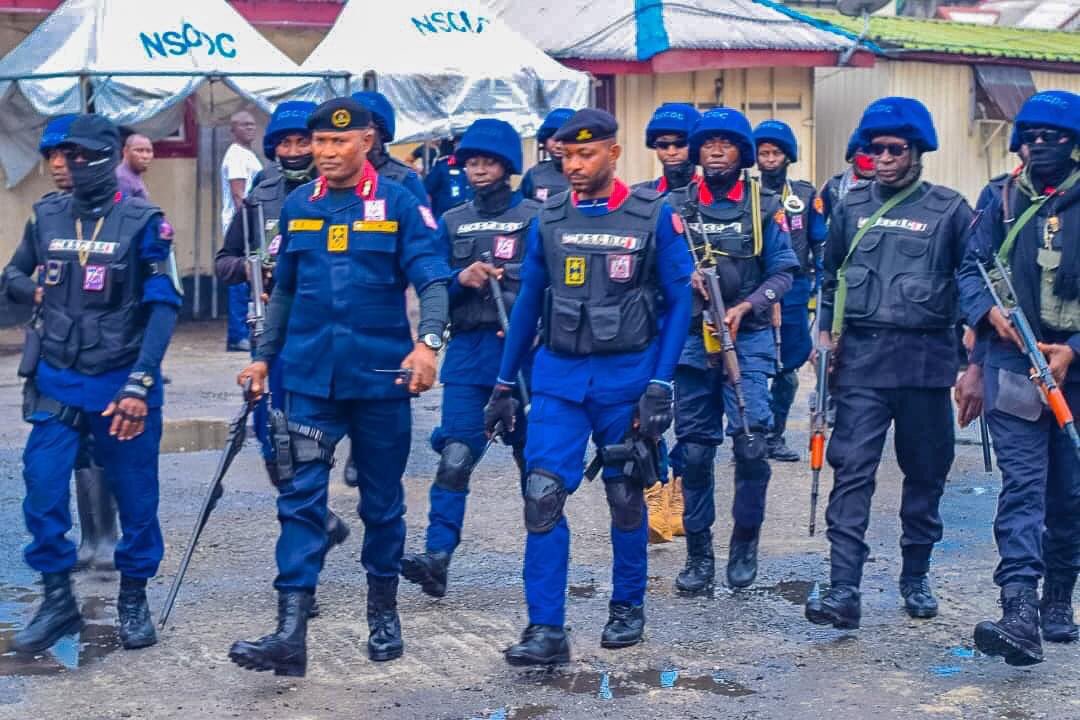The Ijaw National Congress (INC), and other Niger Delta-based advocacy groups have pledged their resolve to partner an oil and gas surveillance firm, Pipeline Infrastructure Nigeria Ltd. (PINL) towards the development of Host Communities of the oil rich region.
In his remarks at the December 2025 edition of the monthly Stakeholders meeting of the PINL, which was held in Yenagoa, the Bayelsa State capital, Chairman of the INC Central Zone, Chief Moses Theophilus, commended the company for its impactful services in the region on the outgoing year.
He noted that PINL’s services have greatly reduced vandalism, oil theft and environmental pollution in the area, pledging the INC’S partnership in the sustained fight against illegal bunkering and sabotage in the region.
“Pipeline vandalism and crude oil theft has been a menace in our region before now, causing immense environmental degradation and environmental loses and social unrest. I commend PINL for this efforts in reducing environmental pollution, protecting aquatic lives and promoting floral and foena growth in our region.
“These efforts are testaments to the company’s determination to corporate governance and citizenship wellbeing of our country. We’ll collaborate to ensure that in 2026 there will be zero infractions in all zones”, he said.
He reiterated the commitment of INC Central Zone to work with PINL and stakeholders to end pipeline vandalism, saying, the INC would continue in that manner to ensure that there was zero infractions in this Eastern Corridor.
Also speaking, a former member of the Bayelsa State House of Assembly and stakeholder, Dr. Omoninibeke Kemelayefa, praised PINL’s corporate social responsibility packages, especially for women and the scholarship for youths, saying it will greatly impact the living standards of the locals.
PINL is a private security company (PSC) incharge of securing pipelines along the Eastern Corridor of the Trans-Niger Pipeline (TNP).
In his address, General Manager, Community Relations and Stakeholder Engagement of the company, Dr. Akpos Mezeh, stated that the decision on siting development projects in host communities would help reduce the temptations of vandalism and oil theft by the people of the community.
“Our decision on siting development projects in host communities followed several requests by the communities which are beyond their scope. Several request by the communities such as provision of roads, schools, healthcare and other social amenities are beyond their capacity, hence the decision to take up the advocacy for them.
“The PINL monthly stakeholders meeting has become the closest interface between the communities, government and IOCs. We have become one of the closest interfaces with the communities and those communities may not even understand that we don’t have the capacity to provide most of those things they are asking for, but for the fact that we have been able to create that platform to air their grievances.
“We’ve complaints of lack of basic amenities, so in 2026, we’ll advocate for more government attention in our communities”, he said.
He gave some highlights of the company’s achievements in the outgoing year to include deepening of security operations to include all oil and gas infrastructures in proximity to TNP, expansion of community and stakeholders’ inclusion, human capacity empowerment with focus on women and students, and strengthening of grassroots communication with introduction of the Town Crier Initiative (TCI).
He also stated sustained and consistent stakeholder engagements, zero illegal bunkering and building of greater trust between PINL and host communities, among other successes, while calling for increased collaboration from the host communities as they look ahead to 2026 for greater impacts.
“Let us continue to protect national assets, empower our people, and strengthen the prosperity of our region and nation. As we step into 2026, may our collaboration deepen, our unity strengthened, and our shared commitment to peace and progress remain unshakable”, he appealed.
The PINL official also announced Christmas palliatives for the 215 TNP host communities.
Earlier, representative of the Nigeria National Petroleum Corporation Limited (NNPCL), Engr. Akponime Omojevwhe, noted that the partnership between the communities and PINL has led to unhindered production on the TNP.
Omojevwhe, who is the head, Field Operations, Eastern Corridor, Project Monitoring Office, NNPCL, revealed that the company’s projection for 2026 is 2.06-million barrels per day with a budgeted benchmark of 1.84mbpd.
“Our projection for 2026 is 2.06mbpd while the budget is 1.84m bpd, and with the kind of synergy we are seeing here in Bayelsa and other PINL coordinated areas, we can do it.
“If everybody comes together, it’s achieveable and it’s realistic. We want to also appreciate the royal fathers, the youth presidents, the women leaders, the CDCs for the efforts”, he stated.
Highpoint of the meeting was the presentation of awards to traditional rulers of the host communities for their efforts in maintaining peace in their domains.
By; Ariwera Ibibo-Howells, Yenagoa








